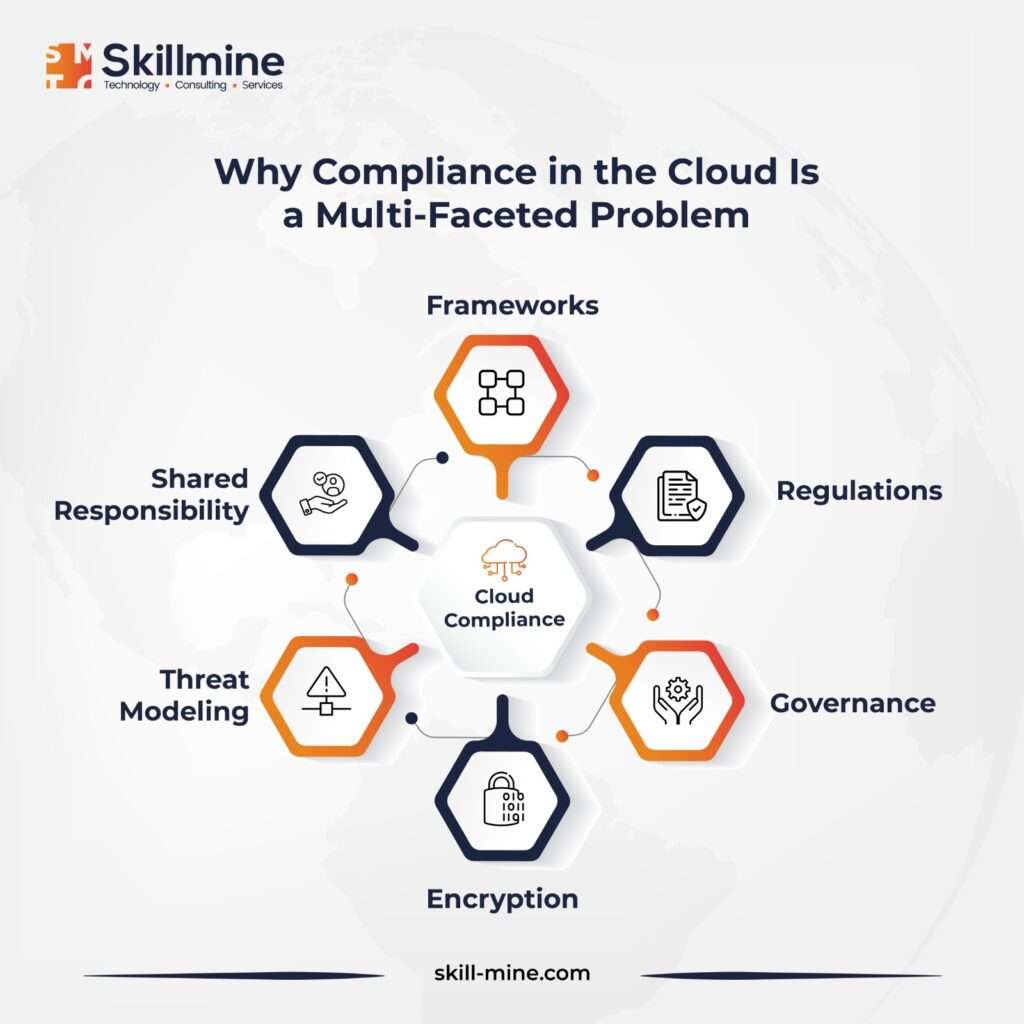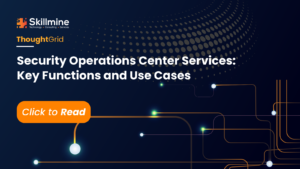According to the World Economic Forum’s Global Cybersecurity report, 2024, 52% of public organizations state that lack of resources and skills is their biggest challenge when designing cyber resilience. In a landscape where data breaches and cyber-attacks are growing increasingly sophisticated, cloud compliance stands as a crucial defense, protecting sensitive information and upholding the integrity of cloud ecosystems.

Understanding Cloud Compliance
Cloud compliance involves adhering to a set of standards and regulations required for cloud computing services. These standards, established by governmental bodies, industry groups, or internal policies, ensure that data stored and managed in the cloud is secure and used responsibly. By safeguarding sensitive information and ensuring data privacy, cloud compliance helps maintain trust between cloud service providers and their clients. Given the rise in data breaches, compliance is essential for operational security and customer confidence.
Components of Cloud Compliance
Cloud compliance requires a comprehensive approach to align cloud usage with various regulatory, legal, and internal standards. Understanding and implementing the key components that govern data management and protection in the cloud environment is crucial for any business to meet compliance requirements and maintain data integrity.
Standards in cloud compliance include a range of best practices and benchmarks guiding the use and management of cloud services. Frameworks like ISO/IEC 27001 for information security management provide a systematic approach to managing sensitive information. Adherence to these standards ensures that cloud infrastructure is secure and operations are efficient, enhancing security and boosting customer trust in cloud providers. Aligning services with these standards is essential for meeting cloud compliance requirements.
Laws and Regulations
Laws and regulations are a fundamental part of cloud compliance, outlining legal obligations for businesses using cloud services. An example is the General Data Protection Regulation (GDPR), which enforces strict data protection and privacy rules for individuals within the European Union. Businesses must understand and comply with such regulations to avoid penalties and maintain customer trust.
Governance
Governance in cloud compliance refers to the policies and procedures businesses establish to control their cloud usage. Effective governance ensures cloud services comply with requirements and business objectives, including clear policies for data protection, access control, and risk management.
Audits
Audits are essential for cloud compliance, allowing businesses to verify that their cloud infrastructure and services meet required standards and regulations. Audits involve a thorough examination of how data is stored, processed, and secured by the cloud provider. Regular audits help businesses identify compliance gaps and areas for improvement in their cloud usage, serving as a key tool for demonstrating compliance to regulators and stakeholders.
Why is Compliance in the Cloud a Multi-faceted Problem?
Compliance in the cloud involves navigating a complex landscape of ever-changing regulations, standards, and industry-specific requirements. Different jurisdictions impose various laws such as the GDPR in Europe, HIPAA in the United States, and others worldwide, each with its own set of compliance mandates. Businesses operating in multiple regions must stay abreast of these diverse legal requirements to avoid penalties and ensure data protection across all locations. This complexity is compounded by the need to align with numerous industry standards, such as ISO/IEC 27001 or PCI DSS, which add additional layers of compliance obligations.
The shared responsibility model of cloud computing further complicates compliance efforts. In this model, cloud service providers manage the physical infrastructure and some security controls, while customers are responsible for securing their own data and applications within the cloud. This division of responsibilities can lead to gaps in compliance if not clearly defined and managed. Organizations must thoroughly understand and implement appropriate measures for their part of the shared model, often requiring coordination and collaboration with their cloud providers to ensure all compliance requirements are met effectively.
Lastly, the dynamic nature of cloud environments presents continuous challenges for compliance. Cloud services are highly scalable and flexible, often involving frequent updates and changes to infrastructure and applications. This constant evolution requires ongoing monitoring and auditing to ensure that any changes do not lead to compliance breaches. Implementing robust governance frameworks and regular audits is essential, but maintaining these in a fluid cloud environment demands significant effort and resources. Organizations must be proactive and agile in their compliance strategies to keep pace with the rapid advancements in cloud technology.
Conclusion
Ensuring compliance in the cloud is a complex and ongoing challenge that requires businesses to navigate a maze of regulations, effectively manage shared responsibilities, and continuously monitor a dynamic environment. Organizations must adopt a proactive and comprehensive approach to address these multifaceted compliance issues, leveraging industry best practices and maintaining robust governance frameworks. Skillmine’s IT GRC solution, COMPLYment, offers comprehensive support to help businesses stay secure and compliant.
Looking for expert technology consulting services? Contact us today.





